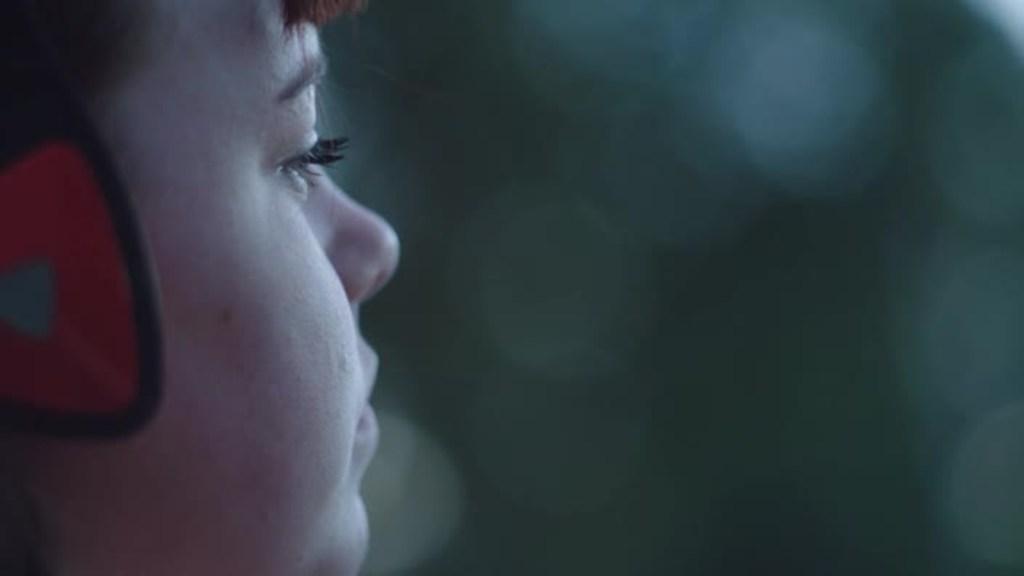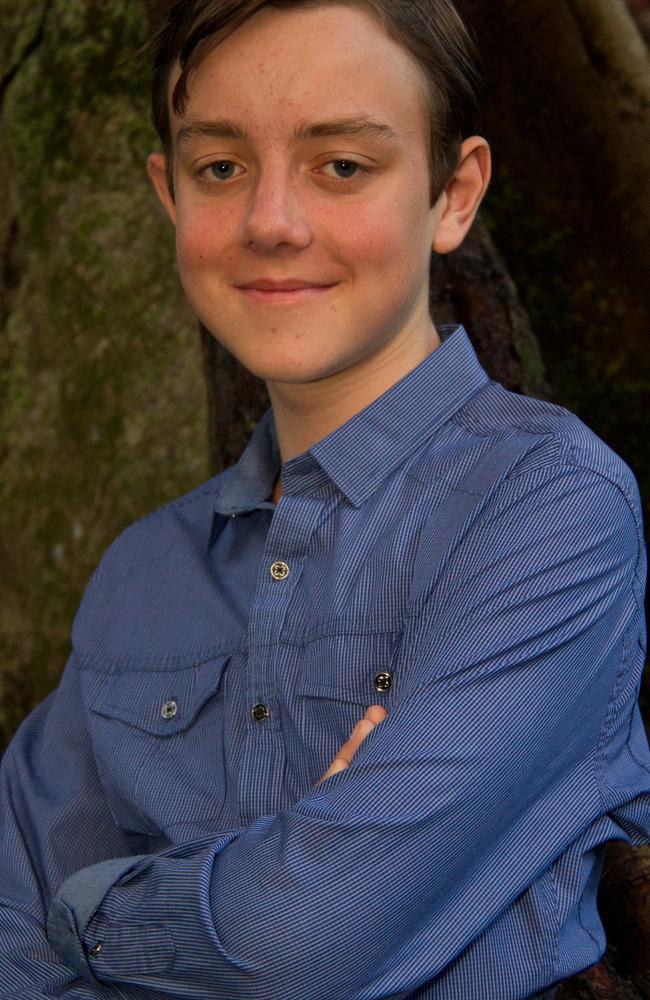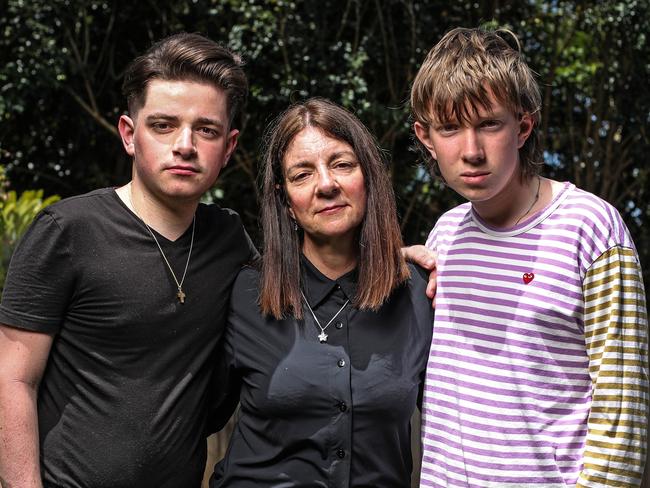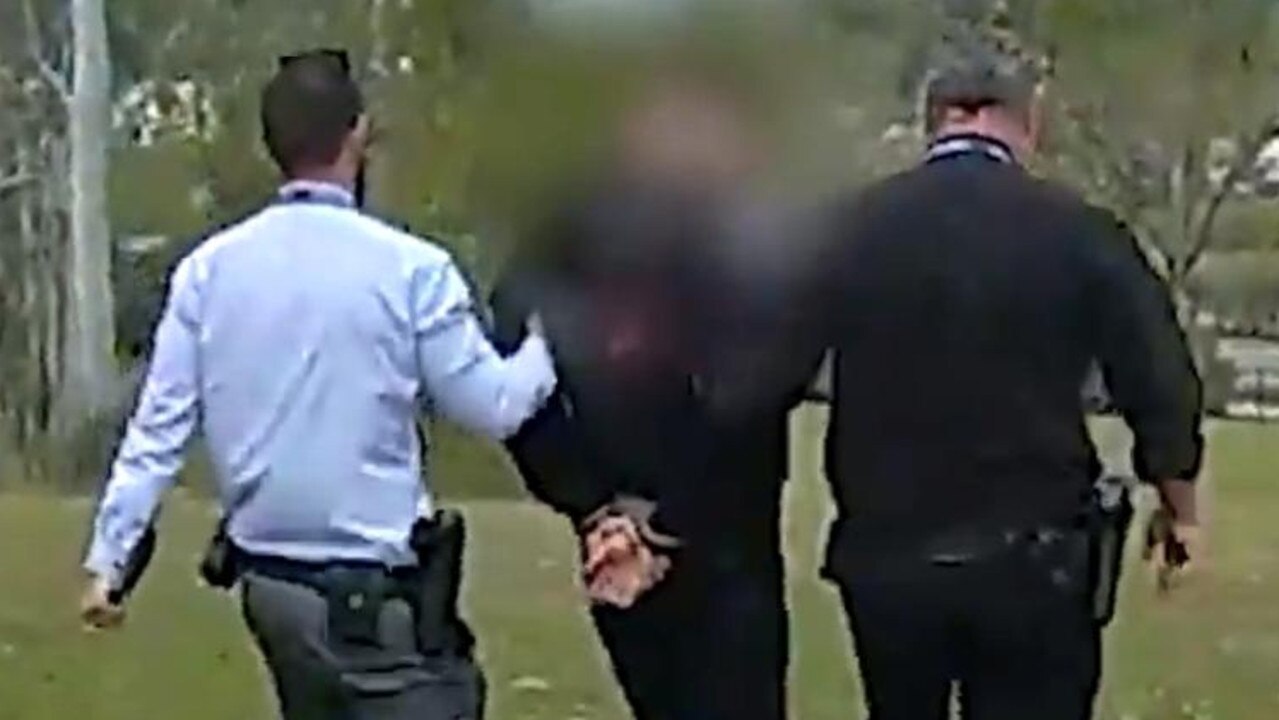Psychologist mum shares private pain of losing teen son to suicide
He was excited about Christmas parties, future travel and was saving for his first car. But then Brisbane teen Baker took his own life. This is his story.

QLD News
Don't miss out on the headlines from QLD News. Followed categories will be added to My News.
A grieving mother and psychologist has shared her private pain at the shock loss of a son to suicide despite “everything going for him” and how her profession has her grappling with what warning signs could have been missed.
Baker, 19, whose surname The Courier-Mail has withheld at the request of his family, had in recent years graduated from a popular high school in Brisbane’s western suburbs and appeared to be “high on life”.
He was excited about a Christmas Party in Sydney, wanted to travel to Canada and was saving for his first car. But in September Baker took his own life, leaving his mother Katrina and her partner, himself a psychotherapist, in shock and grief.
Katrina is speaking out in the hope her story will help other families have tougher conversations with their children about their mental health.

Baker’s best friend and younger brother made the devastating discovering of his body, his work computer still logged on and death seemingly unplanned.
Katrina, who teaches psychology at a Queensland university, said the death of her son had come “out of the blue” after he’d recently spoken about his “short term goals”,
“It’s devastating – but what’s more devastating is that of the three boys (Baker) was the one who had it most together – he had dreams, a huge social network and a good job – he just seemed to have everything going for him,” she said.
“(Baker) just seemed to have everything going for him – his older brother was dealing with learning to live with a disability and his young brother was dealing with the usual senior schooling issues.
“The literature says that males between the age of 16 and 45 are more at risk.
“Yes (Baker) was within that age range but other than that he did not tick the other (risk factor) boxes.”
Katrina said Baker’s friends hadn’t noticed any warning signs of suicide either.
“I struggle with (Baker’s death) every day and I’m pretty sure I will for the rest of my life, there’s just a big question mark,” she said.
Katrina’s partner, who works as a psychotherapist at a private practice and requested his name be withheld out of respect for Baker’s father, said he often dealt with early teens from troubled backgrounds who “learn coping mechanisms to battle their way through”.
He said despite Baker’s “devil may care attitude”, he was a “normal kid” who “had it all”.
Baker lived with his father but every second Sunday, the entire family, including older brother Harry, 21, and younger brother Riley, 16, would get together.
Katrina’s partner said his wife felt like she “failed her son” and that Baker’s death had “pulled at her heart”.
“(My wife) believes that somehow she has caused this – she struggles with ‘how did I miss this?’,” he said.
“(Baker) would come over for dinner or we would go gel blasting – we were a pretty average, blended family – we all talked.”
Baker completed Year 12 but only lasted three months at university.
“(Baker) decided to have a gap year but then expressed an interest to join the navy – we arranged to make that happen, he got part way through the process and then walked away,” Katrina’s partner said.
Baker then worked for a year and a half at a McDonald’s restaurant and corner store followed by a three-month stint at an insurance company.
“His friend circle was absolutely huge … he was your average very well-liked young man but I don’t think he developed very good self-efficacy or resilience within himself,” he said.
Katrina said she wished someone had told her ‘no one is perfect, no one has it together so if one of your sons seems to have it all, they are the ones you should be looking at – sometimes it might look too perfect’.
She said her son had recently spoken about some of his “short term goals” which included moving out of home and gaining more “independence”.
Katrina said the one day a year where people ask ‘R U OK?’, a national suicide prevention day of action held second Thursday of every September, is “completely ineffective”.
“I would ring up all my boys including Baker and say ‘hey how’s it all going – just checking in?’, basically my way as a mother of saying ‘R U OK’ and you get the ‘I’m fine, everything is cool’,” she said.
“I think the question is not ‘R U OK?’ but ‘hey you – let’s sit down and talk’, don’t give your children the option to say ‘yeah I’m okay’.”
Katrina said Baker, like other teenagers, had started to buy Gucci and Tommy Hilfiger.
“He was just high on life – enjoying being 19 and in the prime of his life,” she said.
Asked whether her job impacted her ability to process Baker’s death, Katrina said “my job as a mother is very different from an academic”.

“My identity is not wrapped around my occupation – (my chosen profession) does not prepare you for the reality and the emotional side (of suicide),” she said.
“I don’t put the pressure on myself saying I should have known – my education didn’t make me more or less aware than the next person – I don’t flagellate myself like that.”
Katrina and Baker’s father, Kieran, recently launched an ALIVE fundraiser for Baker which has raised over $10,000 for charities and programs that teach young people self-efficacy and resilience in high school.
Griffith University’s Dr Jurgita Rimkeviciene, who wrote her PhD on impulsivity and suicidality, said “the most acute state is usually brief”.
“There usually is a tipping point in the process, where everything just gets too much,” she said.
Meanwhile, Jacinta Hawgood, the Program Director of Suicidology at the Australian Institute for Suicide Research and Prevention at Griffith University likened the “long-term vulnerabilities” to a “Catch-22”.
Mrs Hawgood said there was a “shame” that builds up in kids, making them feel like they are not good enough and can’t ask for help.
She said “connectedness” was one of the biggest protective factors when it came to suicidality.
“But in the end no one intentionally misses or avoids (warning signs) with their loved ones.”
Asked about suicidal deliberation, Katrina said a young person in that head space had “tunnel vision”
She said parents, coaches, teachers and schools need to have open conversations with young people that “we all have these moments when you feel like ending it all”.
Katrina also encouraged young people to download the Beyond Now app developed by the Australian mental health and wellbeing support organisation, Beyond Blue, which allows users to develop a suicide safety plan.
In 1984, Katrina’s partner said his own younger brother died by suicide, shortly after a relationship breakdown.
“He came home, had a big swig of Bundaberg Rum and went to the living room … we heard a big noise and said ‘what are you doing?’ – he said’ ‘I think I shot myself” and he passed away at 19,” he said.
“And then three years later one of my cousins did the same thing at 19.”
He said it was important for young people to “let vulnerability be the trigger to reach for help, not end it all” and for more high schools programs to teach self-efficacy and resilience.
To donate to the ALIVE fundraiser visit: https://fundraising.alive.org.au/p/296180/to-honour-baker



